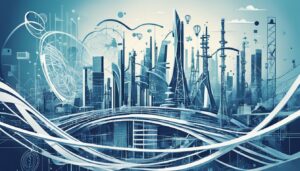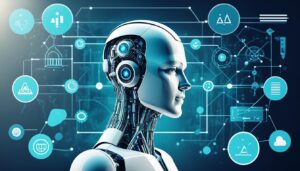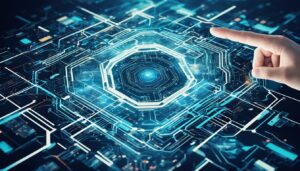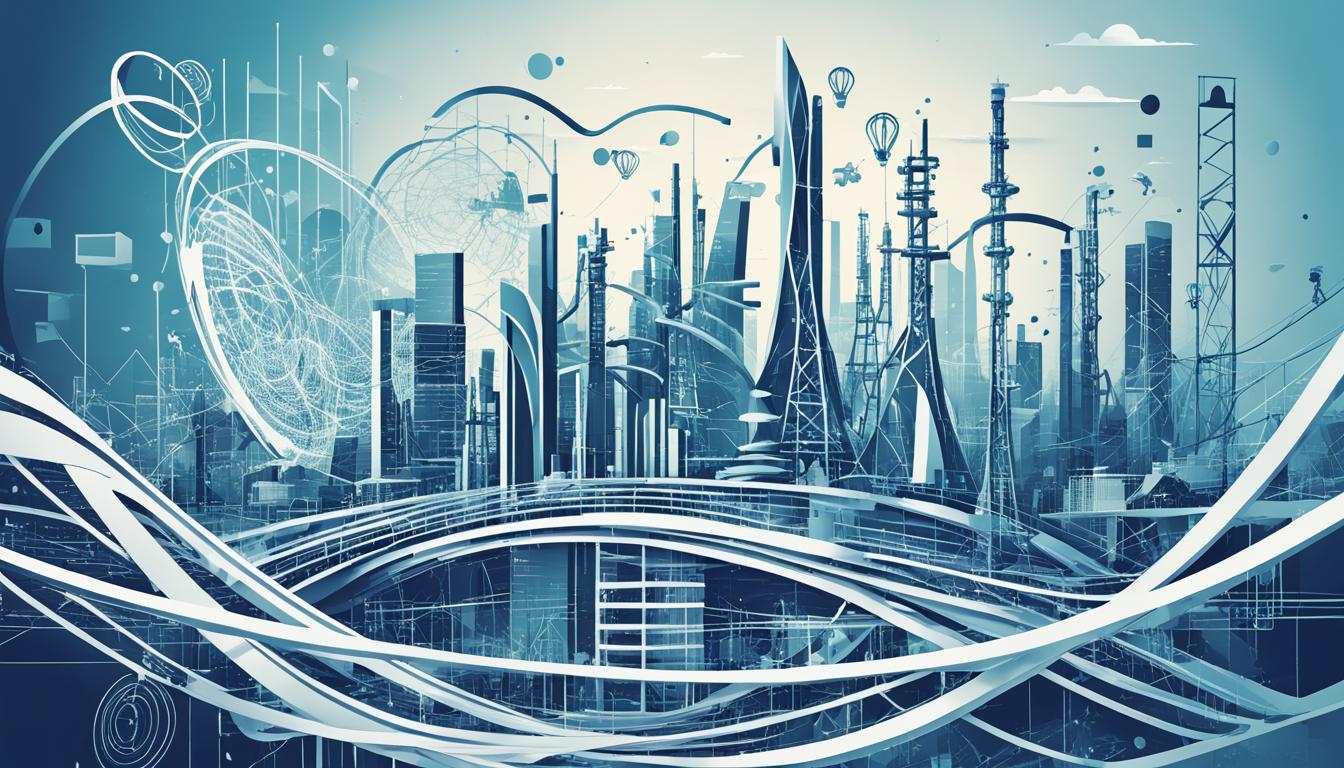
AI evolution has drastically changed many industries, enhancing how work is done and boosting efficiency. Generative AI, especially in models like ChatGPT, is reshaping different sectors impressively.
In healthcare, AI tools help doctors summarize medical writings and connect more with patients. For legal professionals, AI aids in refining arguments and reviewing contracts. This speeds up the workflow. In agriculture, AI improves water use and disease detection in crops, increasing yields. Manufacturers are using AI to analyze feedback from focus groups. They also manage unstructured data better, optimizing their processes.
The use of generative AI has not only made industries more efficient but also enabled staff with less coding skills to develop their own tools. This boosts their work output. The broader impact of generative AI on the economy will rely on cooperation between the government and private sector. It also depends on smart regulation. To make the most of AI, countries need to invest in people and physical assets to push forward in these sectors.
Key Takeaways:
- Generative AI, such as ChatGPT, has revolutionized a range of industries by improving efficiency.
- In healthcare, AI is used for medical literature summaries and patient empathy.
- The legal field benefits from AI in stress-testing arguments and contract review.
- Agriculture utilizes AI for optimizing irrigation and identifying crop diseases.
- Manufacturers leverage AI for focus group feedback analysis and efficient data utilization.
AI’s Impact on Key Industries: Finance, Retail, Manufacturing
AI is changing many industries, making processes better and driving new ideas. It’s reshaping finance, retail, and manufacturing in big ways. Let’s look into how AI is doing this.
The Role of AI in Finance
AI helps the finance world by making things more efficient, cutting costs, and making customers happier. It takes over routine financial tasks, making everything smoother. This lets businesses focus on bigger things.
AI also makes it easier to manage risks by quickly going through lots of data. Plus, AI chatbots and assistants offer personalized help, making customer service better.
AI’s Influence on the Retail Sector
In retail, AI changes how stores manage inventory and interact with customers. AI systems keep stock levels just right, preventing too much or too little. This makes both the store’s operations better and the shopping experience smoother.
AI also lets stores give customers tailored suggestions and deals based on their preferences. And, AI makes creating products cheaper and more efficient.
Transforming Manufacturing with AI
AI is improving how things are made, overseen, and maintained in manufacturing. It uses data from machines to prevent problems before they start. This saves money and keeps things running smoothly.
AI also betters quality control by automating checks and spotting flaws, leading to better products. Manufacturing becomes more productive and cost-effective with AI.
AI’s effects on finance, retail, and manufacturing are huge, bringing more efficiency, cost savings, and better customer experiences. With AI, these industries are moving towards a more modern, competitive future.
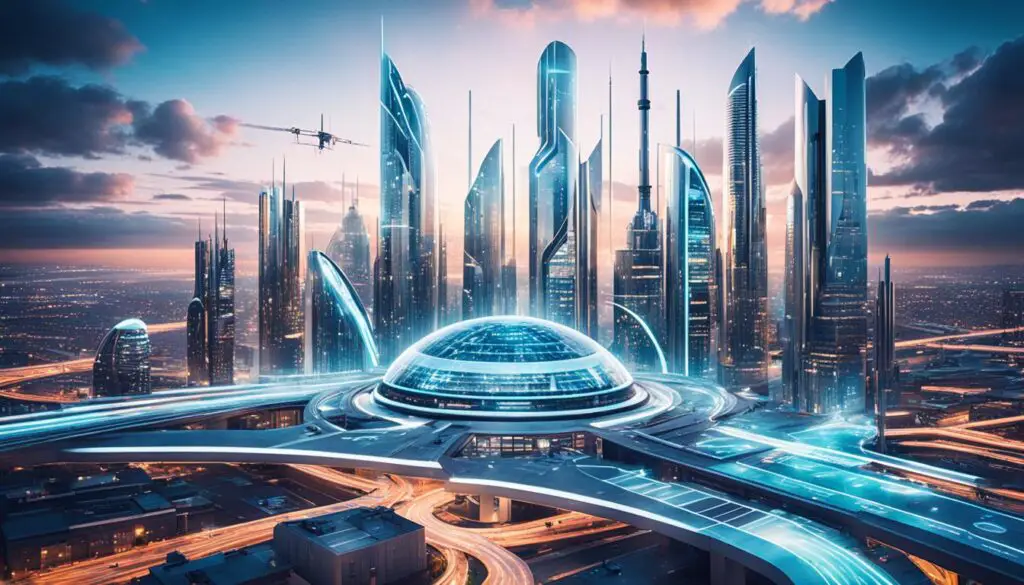
| Industry | AI Applications |
|---|---|
| Finance | Automated financial processes, risk management, personalized customer experiences |
| Retail | Inventory management, personalized shopping experiences, automated production |
| Manufacturing | Production efficiency, quality control, predictive maintenance |
The Economic Potential of AI: $15.7 Trillion Contribution
AI’s economic impact could hit $15.7 trillion by 2030. This is more than what China and India make together now. This big growth comes from better productivity and more people using AI.
AI offers a big chance for new markets to get ahead. As AI gets better, it opens doors for new leaders and businesses to grow.
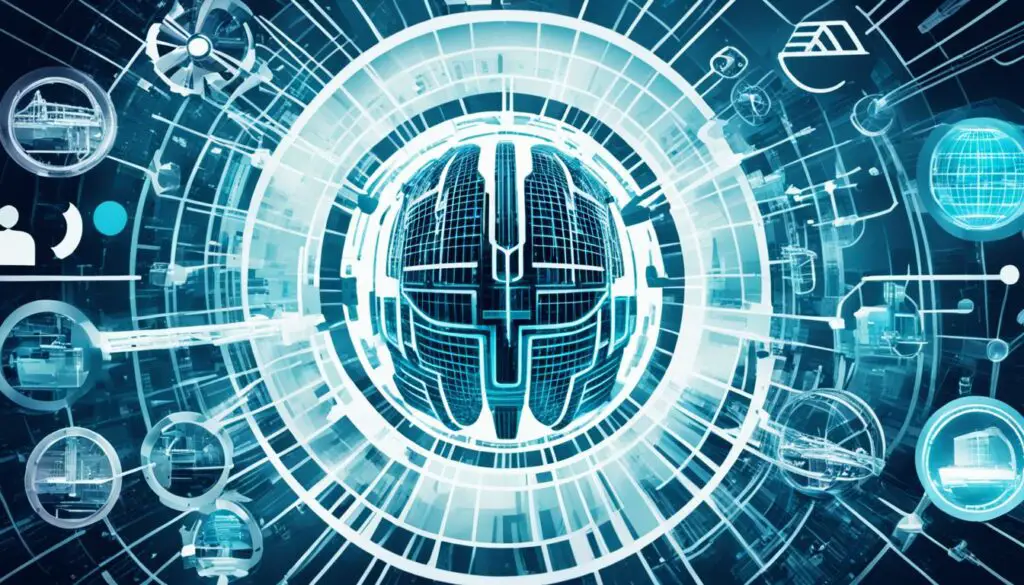
The AI Impact Index shows where businesses can make smart investments. Fields like healthcare, cars, finance, shopping, energy, and transport will benefit a lot from AI.
With smart plans and rules, AI can change many areas and help the world’s economy grow.
| Industries | Economic Impact |
|---|---|
| Healthcare | In healthcare, AI improves how we diagnose, treat, and tailor medicine. This leads to better outcomes and savings. |
| Automotive | In cars, AI helps create self-driving vehicles and keeps maintenance smart. This makes travel safer and greener. |
| Finance | In finance, AI helps spot risks and fraud faster. It also makes customer service better, saving money and time. |
| Retail | In shopping, AI makes suggestions, manages stock, and streamlines supply. This boosts customer happiness and sales. |
| Energy | In energy, AI helps manage renewable sources and optimize the grid. This means better use of resources and savings. |
| Transportation | In transport, AI improves traffic, logistics, and maintenance. This makes operations smoother and reduces jams. |
To fully benefit from AI, we need innovation, teamwork, and ethical AI rules. By using AI right, businesses and economies can grow in this new era of smart automation.
Conclusion
AI is changing the way industries work and impacting global markets. Tools like ChatGPT are improving healthcare, law, farming, and manufacturing. They boost efficiency and offer tailored experiences. AI could add $15.7 trillion to the economy by 2030.
AI’s journey is just beginning, offering chances for new markets and leaders. Success needs teamwork between government and business, plus smart rules. With thoughtful planning and investment, AI will revolutionize industries and spur economic growth worldwide.
FAQ
What is generative AI and how is it impacting industries?
How is AI transforming the finance industry?
In what ways is AI reshaping the retail sector?
What impact does AI have on the manufacturing industry?
How significant is the economic impact of AI?
Which industries are poised to benefit greatly from the adoption of AI?
What opportunities does AI present for emerging markets and new market leaders?
How can the full potential of AI be harnessed?
Source Links
- https://www.pwc.com/gx/en/issues/data-and-analytics/publications/artificial-intelligence-study.html
- https://www.linkedin.com/pulse/transformative-power-ai-impact-18-vital-industries-maurice-bretzfield-3c
- https://www.weforum.org/agenda/2023/12/life-after-the-hype-how-ai-is-transforming-industries-and-economies/



